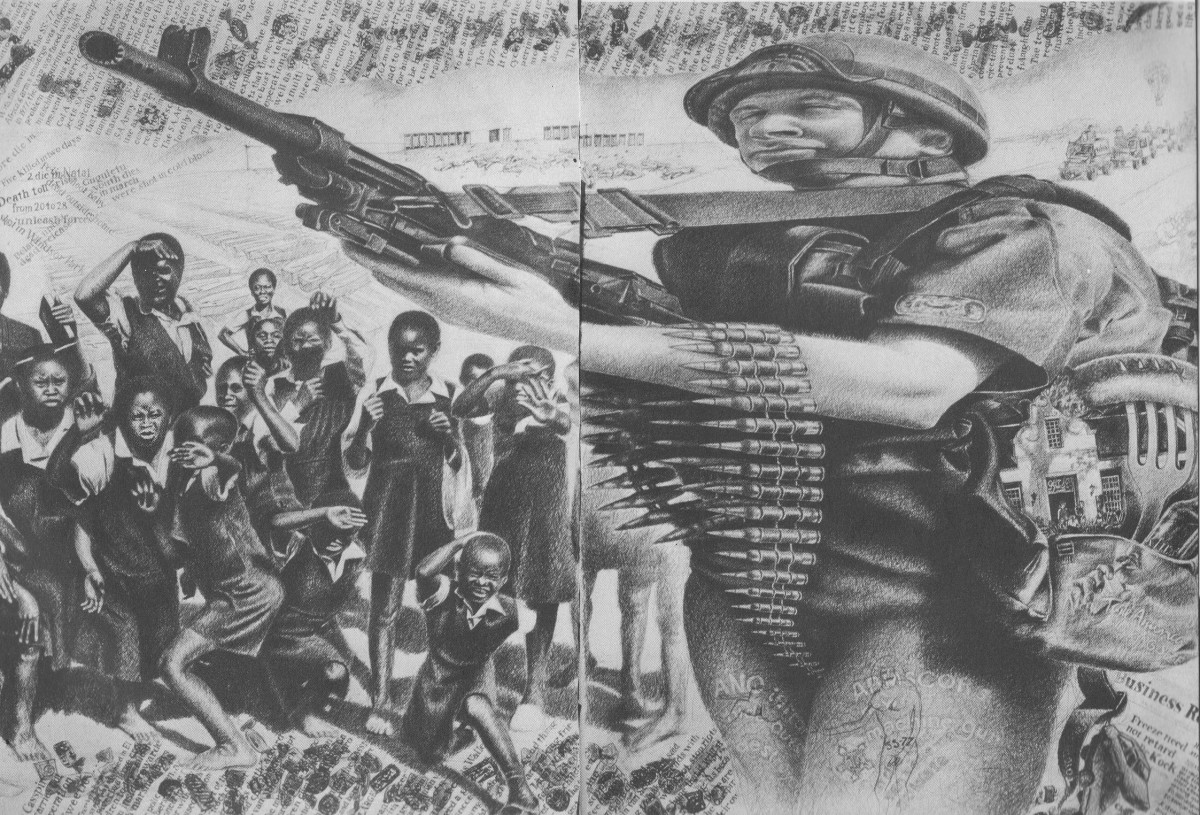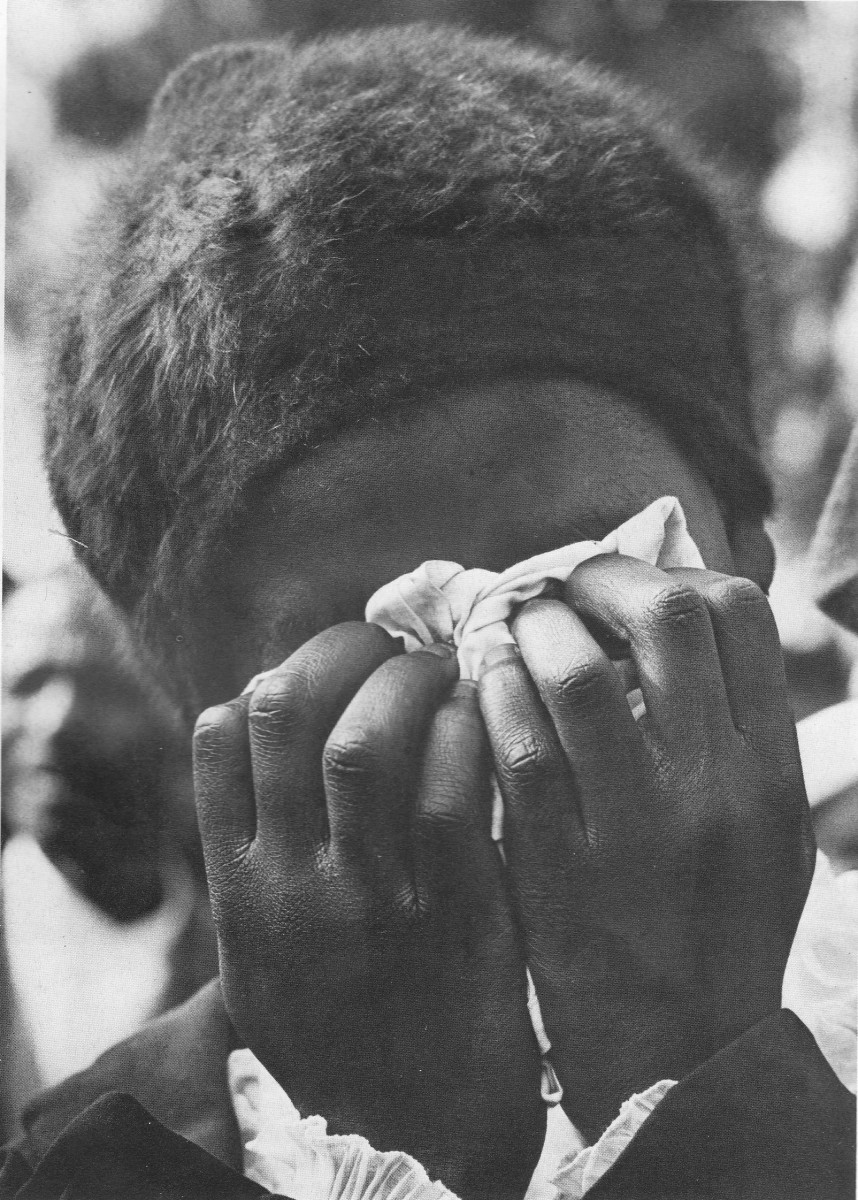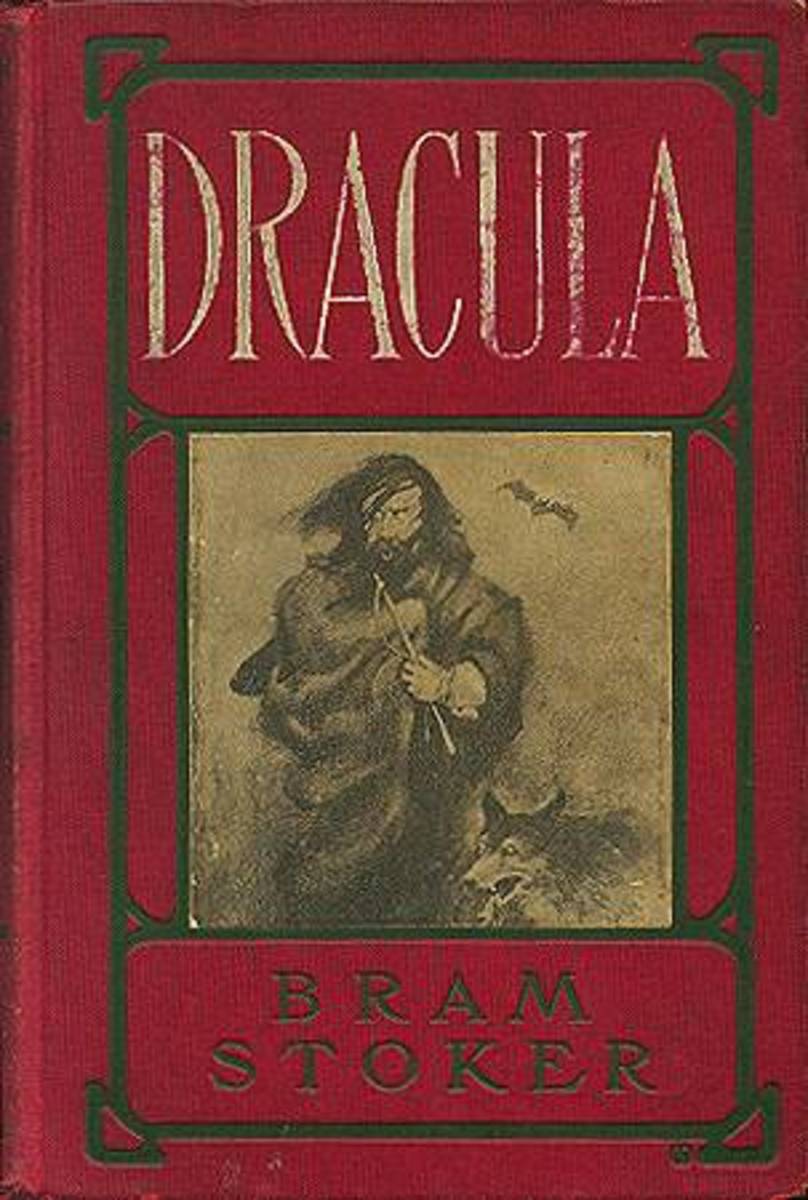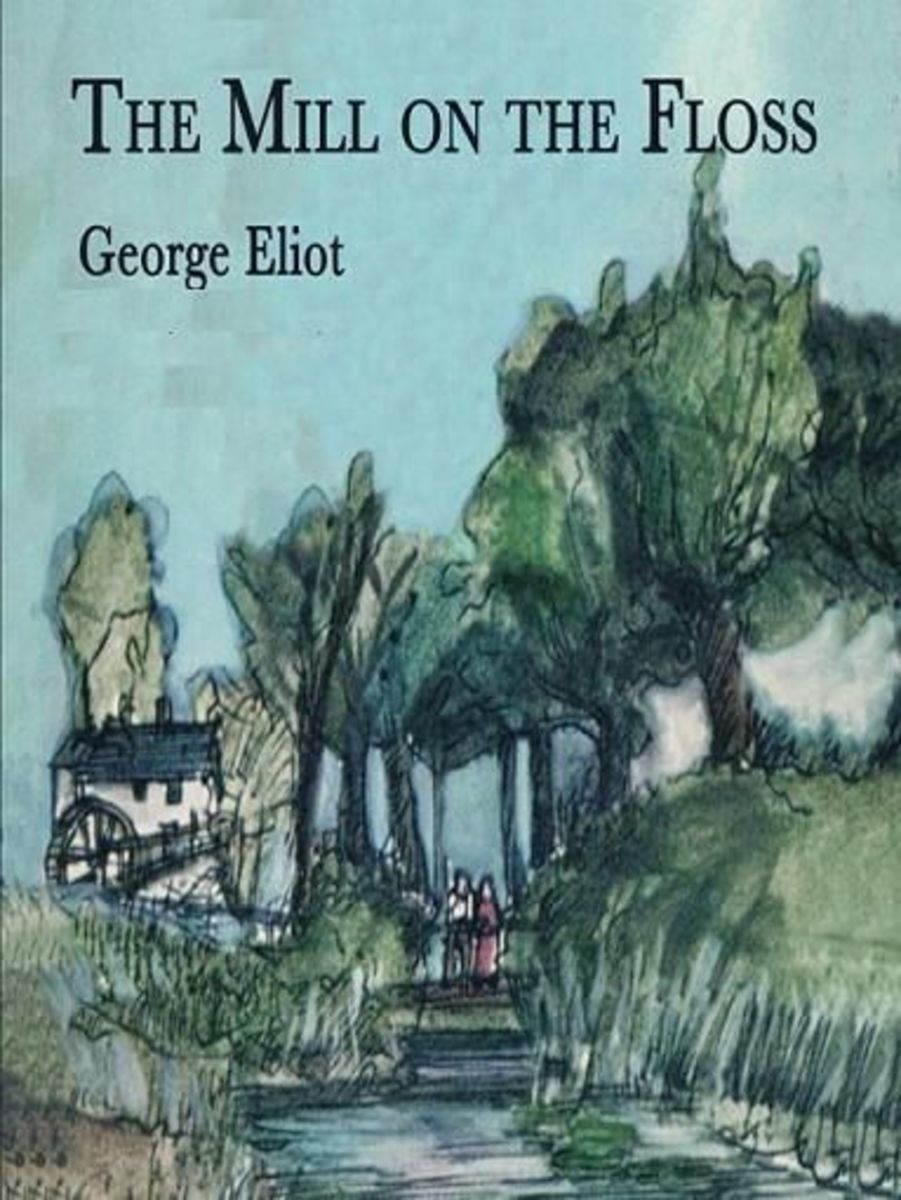Novel: The Ostrich Dance - Chapter Five
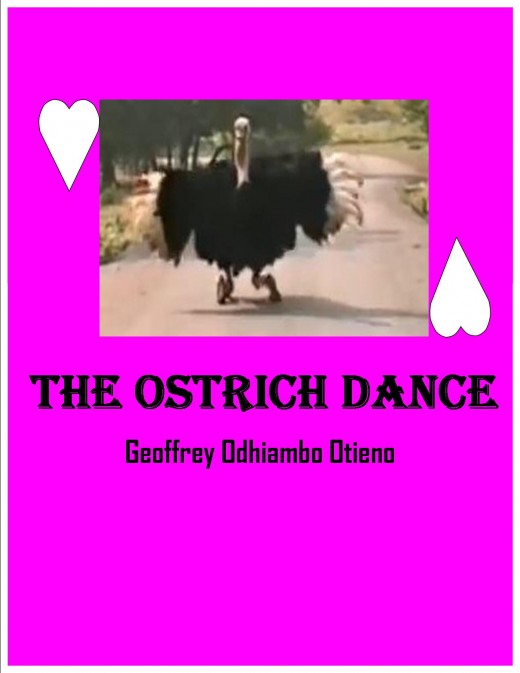
Chapter Five
The Present
At long last the convoy of cars met the Village proper. It was at Kanem Trading Center, some two kilometers away from the former government Ordinance Land, where colonial DC’s in charge of the gigantic South Rondo District had stayed. That was now the late ADJ McOpondo’s home and the destination of the convoy.
First to troop in the valley were the cows, heaps and heaps of cows. These were an integral part of a funeral procession among the Onagi. All the cattle in the village were gathered together to go for romo, meeting the hearse. They jumped around wildly, some rival bulls locking horns, and dust was all over the place.
Then followed the youth. They were covered in leaves from head to toe, so that they looked like mobile bushes. They had spears with exaggeratedly long blades and shields of bright and dull stripes. They sprinted at top speed in zigzagging directions, stopping suddenly to thrust their spears and shields at the invisible hand of death, before setting off again. The potent threat in their activity set some bystanders, women and children, scurrying into the bushes. They uttered battle cries and chanted terror slogans.
Then came the musicians. About fifteen drummers, each with a drum of a different size strapped by a thong over one shoulder. The drums had two hide faces with a hollow cylindrical resonator in between. They hung horizontally under the left armpit so that only one face was struck with two sticks, one in each hand, in alternating rhythm. There were also flutists, horn blowers (with long oversized buffalo horns), jinglers, Nyatiti and Orutu (one-stringed violin) players. There were also the spectacular Abu players, whose instruments consisted of a blowing pipe the height of a man attached to a guard with a round hole at the bottom, producing a deep bass sound.
The rest of the village followed, waving twigs, among them professional mourners at their best. Generally there was mourning and wailing as if the world had just ended.
Stinging Tears
Before stinging tears provoked by this mass expression of grief blurred his eyes, three things struck Caephas.
First, the costumes. There were warriors with fluffy ostrich feathers jutting out at different angles from brass headgear - shaped like bishop’s caps and strapped round the chin - on which the feathers were stuck. Then there were beads stringing in crisscross patterns across the chests and backs. There were skirts made of multi-coloured leather stripes worn over khaki shorts. Then there were thick cotton socks twined with stringed metal jingles and open sandals. These were worn by the male musicians. Some even had deer horns or hippopotamus tusks on the sides of their heads.
Secondly, he was struck by the sheer numbers. The whole convoy had been brought to a halt by the people. Their wailing completely shut out the booming beats of the Matatus. When the rough young men at last managed to gather the bewildered cattle from among the vehicles and started driving them back homeward, crowds and crowds, determined to glimpse at the convoy before turning back, parted in the middle like the biblical red sea, allowing the vehicles to resume their movement at crawling pace. And the crowds were there for as long as the eyes could see.
Thirdly, quite inexplicably, Caephas was struck by loneliness. The full impact of his father’s death now hit him. All that had happened over the last thirty-six hours suddenly smacked him with sheer brute force. Then he realized that he deeply missed his mother. He missed her terribly. He needed her now more than ever before. He knew full well, deep down, that Mrs Samantha Bukovic Jowi would not attend her husband’s funeral. This fact, combined with the general mourning around, provoked his tears.
For the next six minutes or so, his thoughts were in complete turmoil. They drifted from his mother, his girlfriend Cecilly, his workmates in New York, and back to his current loneliness. Where were all of them now when he needed them most?
But, not to worry. Bitterness is a temporary rivulet that dries up quickly. Furthermore, at the pace they were moving, the two-kilometer journey to his home took a record one hour, time enough to recollect his earlier thoughts.
* * * * * * * * * *
His Dad
When Aledi had discovered the most unexpected in Absolom’s house, she had retreated stealthily back in shock and confusion. It was only when she had banged the door shut that she ran blindly to her sleeping quarters, which she shared with other girls. It was several days later that Absolom discovered it had been Aledi in the room that night. When he had heard the door bang and running footsteps retreating, he had disengaged himself and ran out to see. But there had been no one except Yussuf the Arab patrolling at the gate and literally in dark of what was going on. So he had returned to the hut to attend to current business. And so had begun a love affair that lasted exactly two weeks. During that time, Absolom and Goretti did it all. They rode horses together, attended village dances together, walked, swum in the pool and lay in the sun together.
The abruptly it had all ended. The DC saw his daughter off to Europe in the dead of the night. The following morning, he summoned Opondo, Awili and Absolom and banished them from the home. The following day, Opondo bid his family farewell and set off for Burma where World War II was hotting up. No one ever saw him again. DC Morton himself was recalled out of Aynek by the Royal Turkey, for “negative involvement with the natives.” Before the end of the year, Awili was dead.
Life is Like Ridding a Bicycle
Surviving resolutely through the chaotic year, either by design pr negligence on the part of the outgoing DC, was Absolom’s government scholarship. When he returned to Ancelot for the third and final trimester of Form 2, he had made one quiet resolve, that since his actions had put his family out of their haven, he would compensate them by putting them back there, no matter what. He very well deserved the place, because in Goretti he had discovered that whites were just like everyone else. With that resolve, Absolom the politician was born.
Caephas had never clearly fathomed what had made the DC so harsh. Absolom had never brought himself to tell him. All he said was:
“I simply cannot understand why that girl did what she did to me. Silly African, silly, silly.”
That was all he said, again and again, with such a wide smile on his face one could think he was celebrating the successful birth of a baby. Then he would add:
“I don’t want you to ever marry and African son. Never ever!”
Caephas never ceased to wonder at that, wasn’t Absolom’s mother Awili an African by blood, by nature and by nature. He was also puzzled at who this “she” was and what she had done wrong.
Anyway, from then on, Absolom started his ceaseless jostling for position. He strived more than ever before to maintain the increasingly elusive top academic position in his class at the end of every trimester, and he succeeded. He openly canvassed for the position of class monitor, then prefect, then school head prefect, and he succeeded. He pushed to emerge the top student in the final matriculation exams, and even in that he succeeded. The reason was simple really, motivation, sheer motivation. Many students fail because they lack motivation, either they are well provided for at home, or they don’t see what they lack or should want in life, or they don’t know why they are in school in the first place. And that is why such could not compete against people like Absolom. For, as he always said, life is like riding a bicycle. The front wheel is the ideas and dreams. The pedals are the personal effort and motivation. All in all, the rear wheel is the problems and fears, and that is what drives one forward.
Wedding in London
When he proceeded to University in London, he was advised to start pursuit of engineering, but he went for political science, a discipline that had just been introduced for African students. And he excelled. Not just in class, but as a luminary student leader as well. Everyone on campus knew Jowi McOpondo. He then returned to Aynek to join the emergent political liberation movement that later morphed into the Ruling Party (RUPA). He was activist per excellence. So it came as no wonder that in 1958, he triumphantly stormed into the legislative council as the RUPA representative for Greater Kanem.
But there was a catch; actually, a prerequisite. No Onagi, in his right senses could elect you to any position of leadership if you were not married. Never ever! “Where is your wife,” was a legitimate campaign question any time. And there was no way on could talk his way out of that one, no matter how slick his tongue. Not that the election of women was out of question at that time, but they too had to be married. An unmarried migogo could not legitimately represent anyone.
It was for this reason, and the fact that he wanted to compensate for Goretti - who had since married a fellow Briton – that Absolom had shuttled of to Sussex. There he had ended the nascent medical career of a young graduate, Samantha Bukovic. She was of Hungarian origin, but had been born and brought up in Britain. The prospects of marrying this handsome, young nationalist lit her eyes with delight. He was obviously headed for greater things; given the number of meetings he attended in Buckingham Palace on behalf of his country. Moreover, her well to do parents had once gone on a hunting Safari in the British African Colony of Aynek, and so she had a romantic longing for the place. But above all, she was deeply in love with him. To Absolom, it was all a big game.
The wedding held in a London church, was glamorous. Among those who attended were dignitaries, later to become ministers in the independent Aynek government. Absolom smiled through it all.
A Big Political Niche
He then rushed back to Aynek and used his influence to change the name of his region to Greater Kanem constituency. In that way he cut for himself a big political niche that he was to occupy jealously, albeit in gradually reducing size, for the next thirty-four good years. His marriage however, only went half that distance.
Samantha had given up everything for the sake of her marriage. She had followed her husband to Aynek, giving up her work in Sussex. She had visited the remotest parts of his initially oversized constituency with him. She had travelled from the lakeshore of Karogo with its rather peculiar collection of everything including hippos, crocodiles, fish and even camels; all the way to the mapera village of Kanem. The region was so vast that it was later divided into four administrative divisions, each with four constituencies. This was Greater Kanem, whose first Member of Parliament in post independence Aynek, was Absolom Drakens “Maugo” Jowi McOpondo Esq.; and Samantha was his wife and first lady of the remote kingdom.
The sheer joy and ecstasy of Africans taking over power had made Samantha’s marriage a happy one in the beginning. Being the leaders of the successful movement, they were showered with such joy, praise, song and dance, that like her husband, she thought they were quite popular. Little did they know that they were just symbols of the freedom and promise that everyone felt with the new independence; and nobody really loved them as individuals. They continued to live under that illusion, like all other African leaders at the time, for a long time to come. In fact, most of them believed that that song and dance would go on forever. So, apart from taking over the white man’s institutions, they really never got started on the immediate job expected of them. The job was to help the citizenry realize the dreams for which they had entrusted leadership on these characters.
Soon enough the African natives started to smell a rat. They educated their young to take over from the daydreaming luminaries, but their children also became daydreamers. They had their children recruited as policemen and soldiers, hoping for some improved level of understanding from these forces, but the same children were used to ruthlessly suppress them. They looked forward to regaining property like land which they had lost to the white rulers, but the new leaders simply took over the land and settled neatly into the colonialists’ shoes. Then the natives had had enough.
The Coups Started
Then coups started left, right and center. The end result was a new retinue of highly exalted and revered generals. These too assumed that the euphoria was about them as individuals and not about what they were supposed to do. The oppression became worse and bloodier. Where there were coups, there was no joy. Where there were no coups, there was no hope.
Aynek survived the early coups. Her leaders assumed that this was because of the way they suppressed their people. They did not know that their people simply saw no hope in the coups from the other numerous examples around them. And so they intensified the suppression to murderous levels. Several upcoming progressive leaders were heartlessly murdered during this period. The murderers had however, underestimated the level of superstition in the people they led. The assassinated leaders never went away. Aynekans happened to fear the wrath of the dead more than the living. Every dead man, especially a renowned one, is supposed to rest in peace. Before that, they haunt forever through the lips of the citizens. As far as the citizens were concerned, any murdered leader immediately became a saint.
Ultimately, the first president of the republic kicked the bucket. Hon. McOpondo, among others, read the political winds well and threw his weight behind the hot, new, young leader. In that way, he managed to become a minister in the new government. Of course there had been bitter losers from the old government, and they started hatching plans.
The Brand New Leader
The brand new leader brought new hope. People celebrated with the same old independence euphoria. The leader assumed that he was loved, the same old circle. True human knowledge is limitless, but human stupidity is also boundless, especially that of a politician with a deranged cheering crowd.
In Aynek, August was considered the black month. Most horrible things chose that month to happen. A number of political assassinations happened in august. The old president died in August. All sorts of civilian clashes happened in August. Massacres, bomb blasts and horror road and plane accidents all elected the eight month as their favorite time.
So, one fine August morning, there was a coup attempt by the disgruntled leaders of the old regime, who had lost powerful positions during the succession. There were also hypocrites of the new regime whose sympathies were with the coup plotters. The Aynek Air Wing, the aerial arm of the national army, decided to come down to earth and land in the throne. Their coup was successful for a few hours before it terribly aborted. The main reason was that the airmen had gone on drinking binges before unleashing their deadly terror. In the end, sober soldiers loyal to the president managed to abort the coup and restore their commande- in-chief to the throne. The leaders of the coup were ditched and punished. For a fleeting moment, Hon. McOpondo was among the suspects, and indeed he had leaned towards the coup plotters, but then , he disowned the coup vehemently and survived his cabinet position intact. But his marriage to Samantha did not survive.
When he had his wife, Hon. McOpondo had been as terrible a political demagogue as they come. Together with his contemporaries, they jointly participated in only two main projects, plundering and destroying. While his colleagues had gone for the farms and factories left by the whites at independence, knowing that was where the money was, McOpondo only asked to be given the former residence of DC Morton. No economic activity, viable or otherwise could be conjectured, by any stretch of the imagination, to exist on that residence. Nevertheless, like most cunning politicians of his kind, what mattered most to him was posturing, nothing else.
His choice was mainly influenced by the fact that, his belief in the ability to manipulate Africans out of what was theirs, was at its strongest. So why work hard at production, when one could always con the hardworking out of what they had. Thus while other people concentrated on grabbing and gaining wealth, the likes of Absolom concentrated on tricks.
Unbridled Impunity
After the coup attempt, he had no wife. His lifestyle became much worse. Not that his contemporaries who had gone for production were any better. They viewed the enterprises they had inherited as bottomless bags out of which they could forever draw without any expenses. Their life was one big expenditure adventure. They drove only the biggest, most expensive and latest fuel guzzling cars. They rehearsed to use cutlery in expensive hotels, some of which now belonged to them. They entertained in big needless ceremonies. They spoke English via the nose, but with distinct tribal accents. They borrowed expressions from the western media. They suppressed any upcoming innovations that could push their businesses out of the market and continued to run monopolies. Their monopolies were so poorly and unprofessionally run, they could not have withstood any form of competition. Yet they still had the cheek to call themselves successful businessmen and to term all these wayward activities “national development.” Those who opposed their way of doing things were termed “enemies of development.” The lucky critics got away with jail terms for threatening national peace. The unlucky ones simply disappeared never to be seen again.
McOpondo saw through all this hypocrisy. He conned them mercilessly. Human beings, he always said, have only one driving force: fear. He was well aware of this fact. He regularly told Caephas that there were two types of fear: the fear of losing something also known as selfishness; and the fear of missing something a.k.a. greed. So, depending on how he manipulated his man, the latter fear always took precedence over the former. Then the victim was ripe to be conned. It went something like this.
During a cocktail party, a certain Hon. X, drunken sodden, would begin boasting about how he had made a profit of Shillings 0.5 million over the past month alone. Everybody would whoop in flattering awe at the mostly dubious revelation, in the normal stupid party fashion. McOpondo would remain calm until he got the chance. He would reassure the proud Hon. X that the amount he had made was the kind of peanuts McOpondo made in half a day.
“For details, make an appointment with me,” he would wave away the curiosity and continue sipping his cognac.
Hon. X and Mr. Y and Mr. Z would all make an appointment. He would then spin them a yarn about his big oil business in the Sultanate of Oman. In the end he would ask them to invest if they so wished. After enough thought, they would hold back; selfishness. Then one would take the risk. He would reward the fellow with a big profit after one week. Then all the rest, including those who had not made the appointment with him, would get wind of it and invest: pure greed.
“They are as greedy as a mother hyena that just delivered cubs!” he would laugh raucously after making this comment to Caephas.
Ultimately, the ship carrying the consignment would sink in the high seas; game shot. He knew very well, and everyone else knew it too, that the courts would do nothing to him. The politicians operated purely on unbridled impunity.
The Rich Softies
His wife had hated it and that kept him in check. But when he was painfully left alone by her, with a nine year old son as his only true companion, he had become worse. He shared all his experiences with the young boy; partly because he did not wish to be like his ever secretive father who had rarely told him anything directly, and partly because he was always lonely.
To Caephas of course, they had all been fairy tales for entertainment, like the movies on TV, which had since replaced the old tube. Life was easy at their Iborian mansion. He understood food to be found in the refrigerator and shop shelves. Soap was found in the bathroom and the shops. Where there were bad guys, the Six Million Dollar man would take care of them. Caephas had been a dunderhead, like all the dunderheads that the rich strived to bring up in Aynek.
Yes, the rich went to great lengths to bring up softies. They practiced “family planning” which meant getting one or two children. Then they went out of their way to show the little piglets how easy, entertaining and provident life was; how they didn’t have to worry about anything. Some parents even rushed off to school to comfort and protect their children, at the slightest sign of distress. In short, they were pampered out of existential reality and didn’t have the slightest idea how to fend for themselves.
Unlike in the west, which Africans imitated day and night, there were no laws in Aynek to ensure that reluctant parents let go of their children at a certain age. As a result, the children grew up like zombies. However, the human body was designed and genetically wired for action, and the brain for thinking. Where there were no such activities, a certain level of guilt and emptiness filled the youngsters’ heads. Therefore they became easy prey to preachers, who generally prefer to offer “salvation” to the rich for obvious reasons. They also fell victim to drug peddlers. The preachers knew that the down to earth, poverty stricken brethren did budge to the offer of salvation and a better future, just like the rich did, but they certainly had loads of faith and no cash. The drug peddlers knew this too.
The only tragedy was that those spoilt and perverted children were being groomed to take over the leadership of the country. They were actually expected to wage war against the had-core poverty in the land. Luckily, most of them bolted to the US and UK to escape this frightening future, on the handy pretext that they were seeking higher education. There they wasted away into oblivion as their parents proudly boasted about their son owning a car in California.
Caephas was like that. Nevertheless, he was also different in the sense that he had been left without a mother. He couldn’t bring himself to blame his father for her leaving. Instead, like all little children, he had blamed himself. That pained him and so he consoled himself again and again that she would come back. As time went by, this illusion became more vivid as hope diminished. He hallucinated like crazy. In fact, he divided his time between these reveries and listening to his father. His father’s stories, never about Samantha, perhaps deliberately, were always about politics. Caephas secretly suspected that it was this obsession with politics that had sent his mother away.
McOpondo's Tales
One day, while a minister, McOpondo told him a story.
“Son. This President of ours is crazy. He has spent five years fighting the coffee and tea industries saying that they make certain people insolent and belligerent against him. Yet, last week we went on a state visit with him to a neighboring African country. We found a thriving cotton industry there, a booming economy and a happy populace. When we arrived back at Aynek Airport, he addressed a gathering. He soon got carried away and said he felt pain at the way our useless local leaders are obsessed with petty issues, while other countries are making progress. Of course he included us, the ministers in his censure. He had the cheek, when he is the one who has been the pettiest since the critics of Noah’s ark. Beats me this caricature we call President.”
“But daddy, what are the coffee and tea industies?”
“Never mind, one day you will know.”
Another day he would say:
“Never try to make poor people rich son. Never ever! Believe me it is a more worthwhile course trying to make the rich poor. If you find people living in a squalid slum, let them be. If you find people surviving on a starvation died, leave well alone. If you find people complaining about daily problems, don’t intervene. People in slums cannot live in castles, starving people cannot digest a proper diet and poor people cannot live without their poverty. These are the very excuses they use to justify their being, the very ideals for which they live. Without them they are the living dead.”
Afraid to say he didn’t understand some of the terms used, since that would sober up his dad enough to cut the story short, Caephas would opt for a safer question.
“Does that mean rich people can live without riches?”
“That is so hard to tell, since in this country, it is easier for an elephant to hide in a molehill, than for a rich man to enter the kingdom of poverty. The poor folk keep pushing the rich up, rather than allow them to sink into poverty, which is the their exclusive territory.
Take our minister for National Resources for instance. The guy is so corrupt that he has contaminated everyone around him. He even went as far as corrupting his own employees, teaching them that cheating and stealing pays. He maintains that corruption is the best and only way out. Of course the employees responded in kind, by picking his leather factory to a clean skeleton. Then the whole thing came crashing down in one awful smash. Yet his constituents contributed money to restore their son to glory. Absolutely pathetic!”
“Does he have a wife and children?”
That unceremoniously ended the story.
Won the Election
Another day, McOpondo came home beaming with joy.
“Son, I have won the election again. The fools thought they could dethrone me, but I tricked them. Since they haven’t got any issues to address, I gave them a topic. I told in the second last campaign rally I had, that the government was planning to drill oil on Soklo Island, right here in the constituency. Oh you should have heard how they went sing-song about it. Some of them even had the cheek to claim that they had ordered a drilling firm from Iran to do the job. Then, just two days to the election, I asked the wananchi not to be misled into believing there was any oil on Soklo Island. That confused them, and the silly electorate could not remember who brought up the issue initially. By the time everyone sorted it out, I was safely back in the August house.”
Though he avoided any nasty questions this time, the story ended there anyway. Wananchi, who had arrived in droves into the compound, now followed their hero into the house with song and dance. McOpondo promptly grabbed his son and lifted him into the air, joining into the dance.
During his days as the son of a minister, Caephas visited all the political and social landmarks in his country, on various occasions. They were, the Parliament Building while in session, City Soccer stadium for games and national day celebrations, cathedrals during historical weddings and funerals, museums, airports, the seaport, game parks and natural scenic land features.
Betrayed Again
His father had brought a high power delegation to his graduation party at MIT during which time he had arranged Caephas’ engagement to Cecily Spenser, an old friend’s daughter. McOpondo visited America many times after that. The last time he came however, he was crestfallen. He didn’t say much, except that he had lost the election and was quitting politics. This time he did name his betrayer.
“Aledi has betrayed me again,” he sighed.
Three days back, three years after his father’s last visit, Caephas had received a telegram message from the new MP for the now greatly reduced Kanem Constituency, Hon Wilson Osewe, that McOpondo had died of heart failure.

